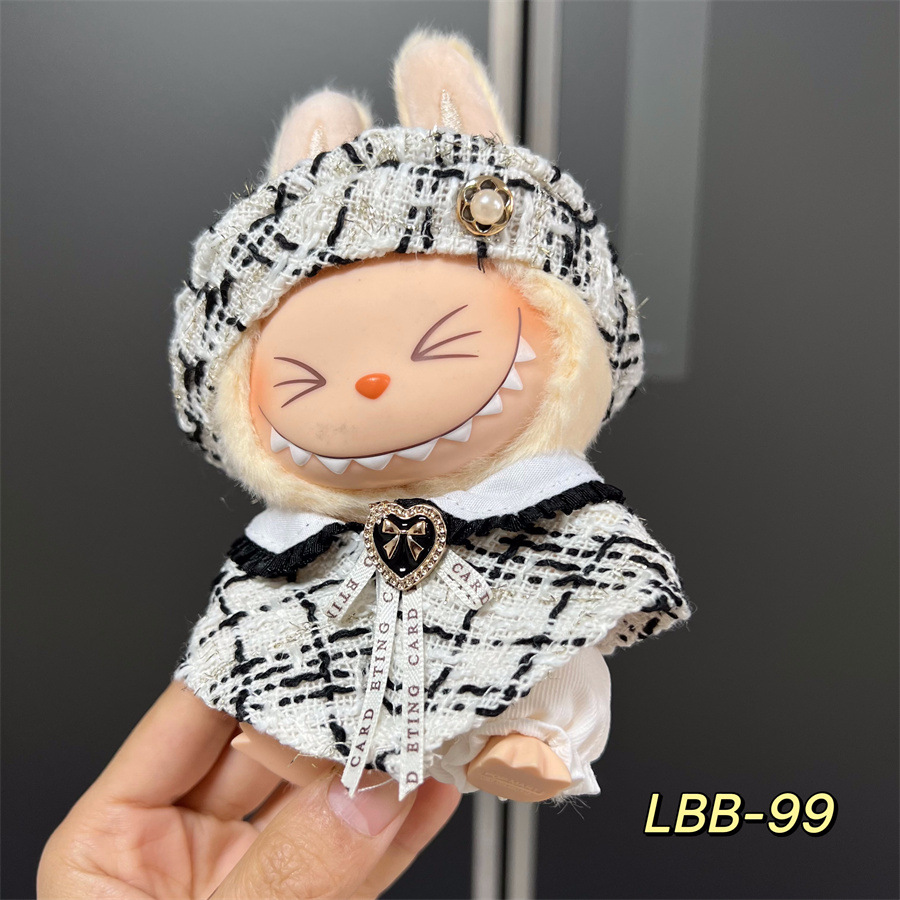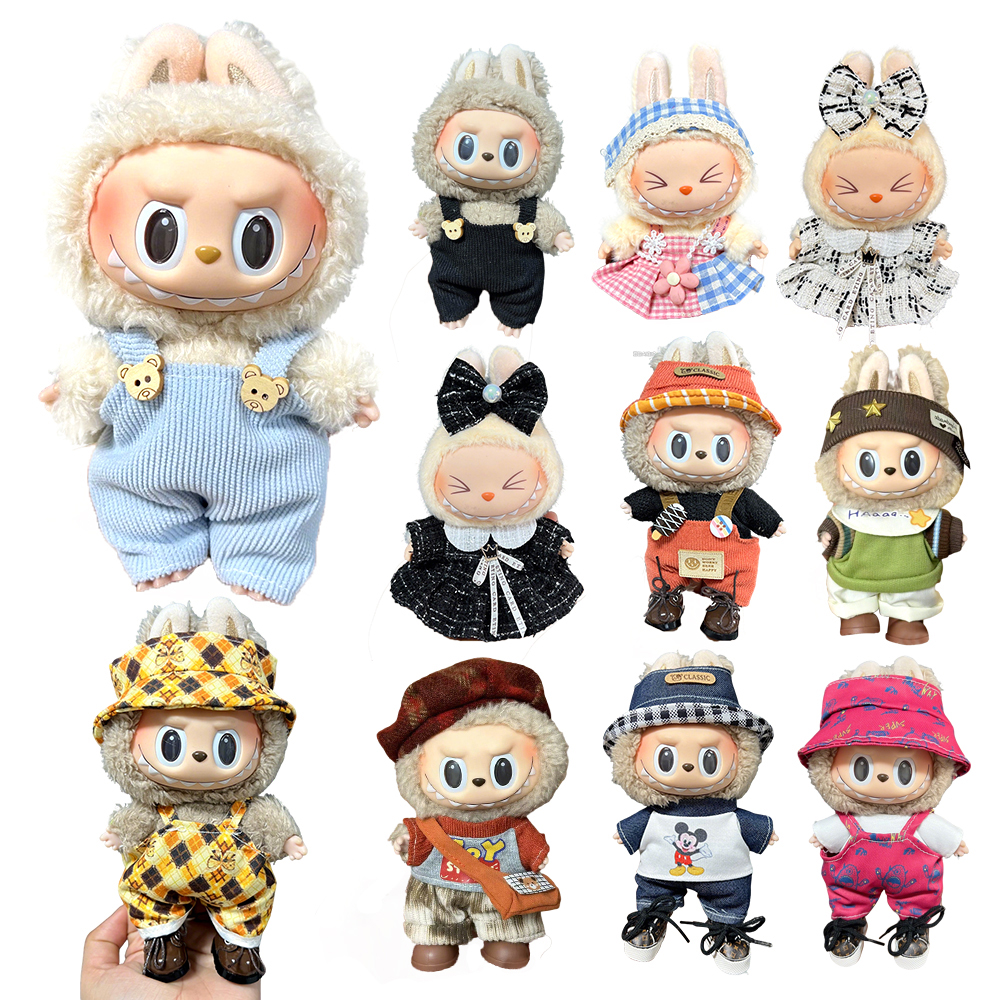The global frenzy for Labubu—the snaggle-toothed cultural phenomenon from Chinese toymaker Pop Mart—has reshaped consumer markets and cross-border ecommerce alike. With authentic dolls selling for up to $108,000 at auction and TikTok hashtags surpassing 5.8 billion views, demand massively outstrips supply. Yet sellers face a minefield: Amazon has purged hundreds of infringing listings, while customs agencies from Guangzhou to Kazakhstan seized 43,200 counterfeit plush toys and 3,088 knockoff blind boxes in recent weeks alone.
As regulators crack down, savvy cross-border entrepreneurs are discovering a golden loophole: non-IP-attached peripherals. From doll-sized fashion to tech-enabled display cases, these ancillary products leverage the craze without crossing legal boundaries—and are quietly generating millions.
The $30M/Month Wardrobe Economy: Dressing the Hype
Labubu owners aren’t just collecting dolls—they’re curating identities. This psychological shift birthed the explosive doll apparel market, where artisans design miniature outfits selling for $20–$80 per set. On Xiaohongshu, the hashtag #labubu has ignited 30,000+ discussions and 30 million views, with top creators reporting $30,000 monthly revenues.

Crucially, these garments avoid infringement by focusing on universal sizing and original designs:
No Labubu branding: Sellers market "clothes for 17cm vinyl dolls" rather than Labubu-specific wear.
Creative independence: Outfits incorporate trends like punk denim or hanfu without replicating Pop Mart’s copyrighted patterns.
Platform-native promotion: Tutorials showing dolls (user-owned) wearing generic clothes sidestep IP claims while demonstrating fit.
One Guangzhou-based seller, @PINKY STORE, sold 10,000+ $30 bow-tie sets in two months by targeting international buyers via Instagram Reels—all while carefully avoiding Labubu’s name in listings.
Display Tech: Where Functionality Meets Fandom
With collectors obsessing over preservation and presentation, display solutions have become the stealth MVP of the Labubu ecosystem. Chinese manufacturer GOTO pivoted from shoe storage to collectible display cases in 2024—and hit $3.75 million annual sales by solving three pain points:
Modular design: Adjustable compartments fit diverse figurines, avoiding Labubu-specific marketing.
Atmosphere engineering: Integrated LED lighting and voice controls enhance "scene aesthetics" for social sharing.
IP-neutral collaborations: Partnerships with games like Onmyoji provide themed backdrops unrelated to Pop Mart’s IP.
Similarly, Yiwu factory Zhuo Chao now produces 60,000+ protective cases monthly, with anti-dust seals marketed as "universal blind box shields." Their Amazon listings explicitly state: "Compatible with mainstream 3–4 inch figurines"—a legally safe nod to Labubu’s dimensions without naming it.

Maintenance & Customization: The Invisible Goldmine
Beyond clothing and displays, maintenance tools are thriving in Labubu’s wake:
Specialized micro-brushes ($5–$15) for dusting intricate doll crevices
UV-protective glass cabinets with humidity control ($60–$200)
Non-adhesive putty for securing figurines without damage
These purely functional products require zero IP engagement. As Shanghai-based seller TinyTools explains: "We sell ‘vinyl toy care kits’—what collectors do with them isn’t our concern."
Meanwhile, customization services like radical doll makeovers let artists capitalize on trends ethically. Creators charge $50–$350 per commission to modify user-owned Labubus—repainting faces or adding handmade accessories. By operating as a service (not product sales), they avoid reproduction rights violations.
The Compliance Playbook: Thriving in IP’s Shadow
Successful sellers deploy four key strategies to monetize hype legally:
Abstracted Keyword Targeting
Instead of "Labubu clothes," use "vinyl doll fashion" or "blind box apparel." As one Amazon seller notes: "Our top-performing listing says ‘fits your rebellious elf friend’—fans get the hint, algorithms don’t flag it".
Design Detachment
Products must avoid Labubu’s nine teeth, asymmetric eyes, or trademarked color schemes. One legal win saw a designer successfully sell miniature guitars by proving they matched real instruments—not Pop Mart’s designs.
Value-Added Storytelling
Market utility, not fandom. Display case brand GOTO emphasizes "museum-grade conservation" and "modular scenography," shifting focus from IP to craftsmanship10.
Geo-Targeted Launches
Regions like Southeast Asia tolerate softer IP interpretations. Sellers first test products there before scaling to litigious markets like the EU or US.
The Verdict: Profit Without Piracy
Labubu’s wildfire success reveals a fundamental ecommerce truth: wherever cult products emerge, ancillary markets follow. As Pop Mart accelerates global copyright filings—even preemptively trademarking parody names like "LAFUFU"—the smart money flows toward unregulated peripherals.
For cross-border sellers, this peripheral economy offers rare advantages: no licensing fees, reduced legal risk, and attachment to an organic, user-driven trend. As one Taobao seller quipped while packaging 500 Labubu-sized hoodies: "We’re not selling the idol—just the idol’s jacket."
In the end, the Labubu phenomenon teaches us that in today’s IP-sensitive landscape, the most sustainable wins come not from hijacking hype, but from serving its shadows.
Post time: Jul-12-2025



